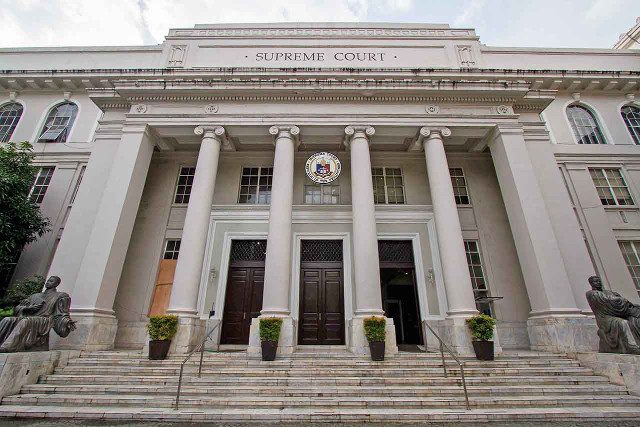SUMMARY
This is AI generated summarization, which may have errors. For context, always refer to the full article.

MANILA, Philippines – The Supreme Court (SC) has affirmed a Court of Appeals (CA) decision to grant the petition of a human rights lawyer for the issuance of the writs of amparo and habeas data.
In a 21-page ruling issued penned by Associate Justice Lucas Bersamin, the High Court’s First Division junked the petition filed by officials of the Armed Forces of the Philippines (AFP) and the Philippine National Police (PNP) seeking the reversal of the 2015 CA ruling in favor of lawyer Maria Catherine Dannug-Salucon.
The High Tribunal upheld the CA ruling that gave weight to the proof presented by Salucon. The military had argued that such proof was based on circumstantial evidence and hearsay testimonies.
In junking the AFP and PNP petition, the High Court pointed out that proceedings related to the petition for the issuance of the writ of amparo should allow not only direct evidence, but also circumstantial evidence.
“What the respondent obviously established is that the threats to her right to life, liberty and security were neither imaginary nor contrived, but real and probable. The gunning down of her paralegal Bugatti after he had relayed to her his observation that they had been under surveillance was the immediate proof of the threat,” the SC said.
“The purpose and noble objectives of the special rules on the writ of amparo may be rendered inutile if the rigid standards of evidence applicable in ordinary judicial proceedings were not tempered with such flexibility,” the High Court added.
The SC also sided with the CA when it granted Salucon’s plea for a writ of habeas data. It ordered the respondents to produce and disclose to the court all information, records, and evidence pertaining to Salucon for possible destruction upon orders of the court.
“The directive was factually and procedurally warranted,” the SC said.
In April 2014, Salucon, a member of the National Union of Peoples’ Lawyers (NUPL) in Isabela, filed a petition for writs of habeas data and amparo before the CA after she received information that she was under military surveillance for representing prisoners alleged to be members of the communist New People’s Army (NPA).
A writ of amparo is a remedy that serves to protect constitutional rights perceived to be in danger. A writ of habeas data protects a person’s right to control information especially when such information was illegally obtained.
Salucon alleged that she was tagged as a “red lawyer” and included in the military’s watchlist of so-called communist supporters in the legal profession.
In her petition, the lawyer cited instances when military personnel allegedly cased her and asked her about her daily activities.
Unidentified men also killed her paralegal, William Bugatti, after he told her she needed additional security measures to protect her safety.
The High Court also said it was established that the civilian asset of the PNP Intelligence Section relayed to Salucon that there was standing order to conduct a background investigation on her to confirm if she was a “Red lawyer.” The order was issued by the PNP Isabela Provincial Office to the PNP office in Burgos, Isabela.
The SC also said that Salucon was under surveillance by different individuals who appeared to be members of the military or police.
“These and other established circumstances fully warranted within the context of the Rule on the Writ of Habeas Data the directive of the CA for the handing over and destruction of all information and data on her in order to protect her privacy and security,” the Court said.
The SC remanded the case to the CA for the monitoring of the investigation to be conducted in line with the latter’s decision dated March 12, 2015, and for the validation of the investigation results.
In its March 2015 ruling, the CA directed the Armed Forces of the Philippines to name and file proper charges against personnel allegedly harassing Salucon.
The respondents in the case are then AFP chief Emmanuel Bautista, then Philippine Army Commanding General Hernando Irriberi, General Eduardo Ano who was chief of the Intelligence Service of the AFP at the time, General Benito Antonio De Leon in his capacity as commander of the Army’s 5th Infantry Division, and Chief Superintendent Miguel De Mayor Lauder, who was then acting chief of Police Regional Office 2
The CA had ordered them or their successors to produce before the court for possible destruction all information, records, photographs and dossiers gathered on Salucon. – Rappler.com
Add a comment
How does this make you feel?
There are no comments yet. Add your comment to start the conversation.